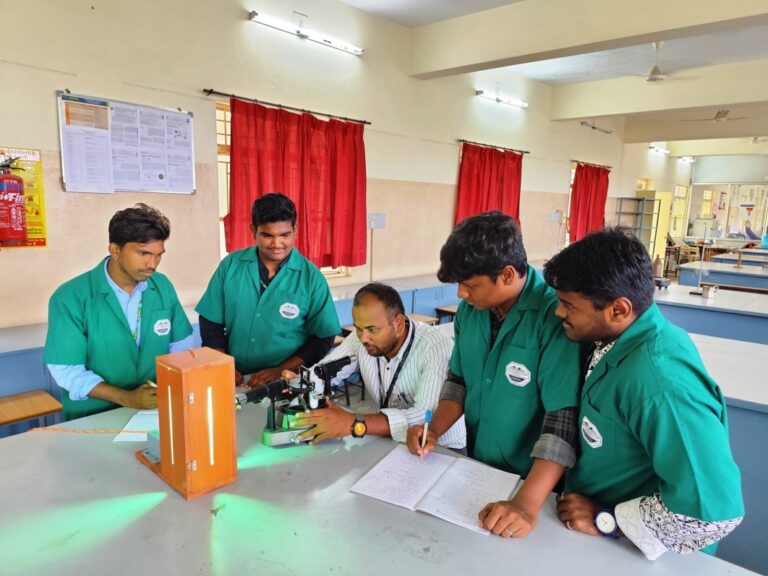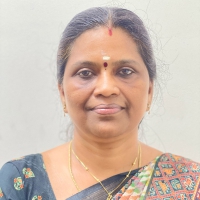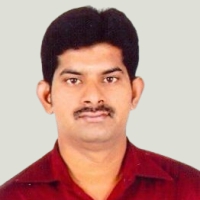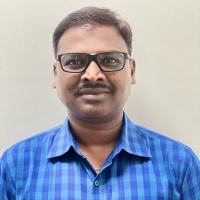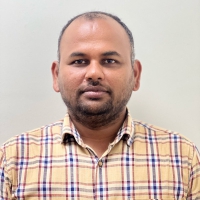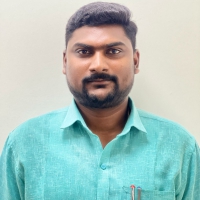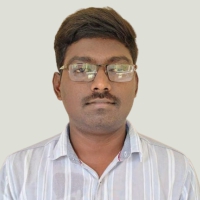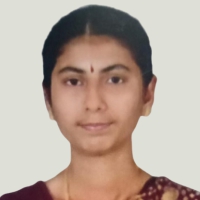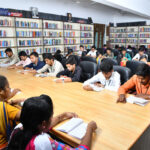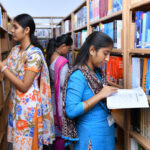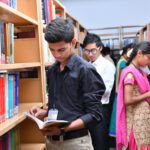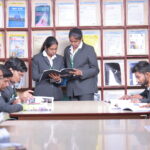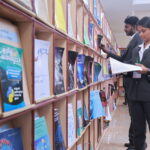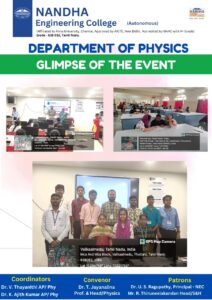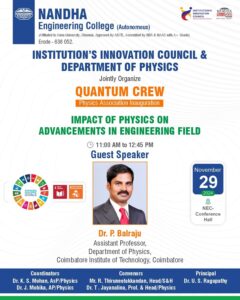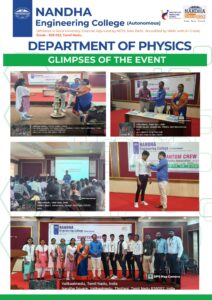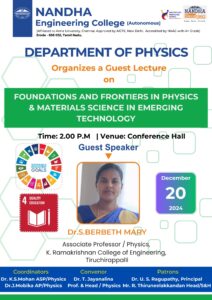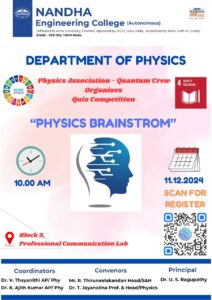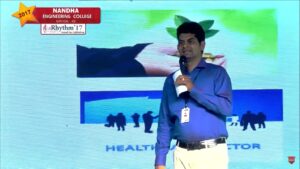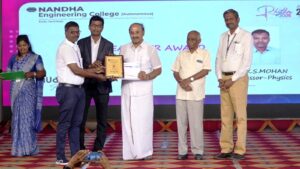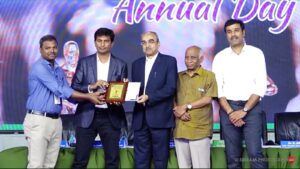
Head of the Department
Science and Humanities
Intake 1020
About the Department
The Department of Physics is dedicated to excellence in teaching, research, and innovation. Our department provides a strong foundation in fundamental physics principles that underpin all engineering disciplines and preparing students for careers in academia, industry, and research. With state-of-the-art laboratories, experienced faculty, and a curriculum that blends theoretical concepts with practical applications, we foster a deep understanding of the fundamental principles governing the universe. Through seminars, workshops, and collaborative projects, we inspire innovation and discovery in the field of physics.
Empowering future engineers with the fundamental physics they need to change the world.

VISION
To be a center of excellence in physics education and research that empowers engineering students with fundamental physical principles, analytical thinking, and experimental skills necessary to become innovative problem-solvers and leaders in their respective fields.
MISSION
- To provide high-quality education in fundamental and applied physics tailored to the needs of engineering disciplines.
- To conduct cutting-edge research that advances scientific knowledge and contributes to technological innovations.
- To develop well-rounded engineering professionals who can apply physical principles to solve complex real-world problems
- • To prepare the students to adapt to emerging technologies and contribute to sustainable development through physics-based solutions.
PROGRAM EDUCATIONAL OBJECTIVES (PEOs)
- PEO1: Core Competency: Apply the knowledge of mathematics, science and engineering fundamentals to identify and solve technological problems by deploying various software tools for societal development.
- PEO2: Research, Innovation and Entrepreneurship: Implement recent tools, technologies and innovative ideas for leading successful careers in research / entrepreneurship and to excel in solving real world problems.
- PEO3: Ethics, Human Valued and Life-Long Learning: Exhibit professional ethics in the industry and possess the necessary skills for working in multi-disciplinary areas with focus on life-long learning.
- PO1: Engineering Knowledge: Apply knowledge of mathematics, natural science, computing, engineering fundamentals and an engineering specialization to develop the solution of complex engineering problems.
- PO2: Problem Analysis: Identify, formulate, review research literature and analyze complex engineering problems reaching substantiated conclusions with consideration for sustainable development.
- PO3: Design/Development of Solutions: Design creative solutions for complex engineering problems and design/develop systems/components/processes to meet identified needs with consideration for public health and safety, whole-life cost, net zero carbon, culture, society, and environment as required.
- PO4: Conduct Investigations of Complex Problems: Conduct investigations of complex engineering problems using research-based knowledge including design of experiments, modelling, analysis & interpretation of data to provide valid conclusions.
- PO5: Engineering Tool Usage: Create, select and apply appropriate techniques, resources and modern engineering & IT tools, including prediction and modelling recognizing their limitations to solve complex engineering problems.
- PO6: The Engineer and The World: Analyze and evaluate societal and environmental aspects while solving complex engineering problems for its impact on sustainability with reference to economy, health, safety, legal framework, culture, and environment.
- PO7: Ethics: Apply ethical principles and commit to professional ethics, human values, diversity and inclusion; adhere to national & international laws.
- PO8: Individual and Collaborative Teamwork: Function effectively as an individual, and as a member or leader in diverse/multi-disciplinary teams.
- PO9: Communication: Communicate effectively and inclusively within the engineering community and society at large, such as being able to comprehend and write effective reports and design documentation, make effective presentations considering cultural, language, and learning differences.
- PO10: Project Management and Finance: Apply knowledge and understanding of engineering management principles and economic decision-making and apply these to one’s own work, as a member and leader in a team, and to manage projects and in multidisciplinary environments.
- PO11: Life-Long Learning: Recognize the need for, and have the preparation and ability for i) independent and life-long learning ii) adaptability to new and emerging technologies and iii) critical thinking in the broadest context of technological change.
- PSO1: Analyze, design and apply mathematical foundations, principles of computing, Algorithms, modeling and design of Information Technology based systems.
- PSO2: Develop problem-solving skills in the broad area of programming concepts and to manage interdisciplinary projects.
R & D
Name of the Major Equipment available for research
Spin coating unit (Make: APEX, Model: EZSPINA1)
UV-VIS. Spectrophotometer (Model: LMSPUV1200)
Magnetic stirrer with hot plate (Make: REMI)
Centrifuge (Make: REMI)
Hot air oven (Model: Scientek)
Muffle furnace (1100°C) (Model: Scientek)
pH Meter
Constant temperature bath (5 – 80 °C)
Digital ultrasonic cleaner (Model: LMUC9)
Magnetic stirrer with temperature sensor
Teflon coated auto clave & micropipette
Laminar Air Flow Chamber fitted with UV Germicidal lamp (Working Area:4x2x2 ft, RPM: 1200 to 1400)
Gereber Centrifuge (RPM: 1100), Accommodate (up to 8 butyrometers)
Microwave Oven (Capacity: 20lts, Dimension : 46 × 32 × 25 cm)
Water Bath (Mild Heating of Samples upto 100°C) (Dimension: 300x250x100 mm, Capacity: 8 ltrs)
Faculty Members
Supporting Staff Members
Department Laboratory
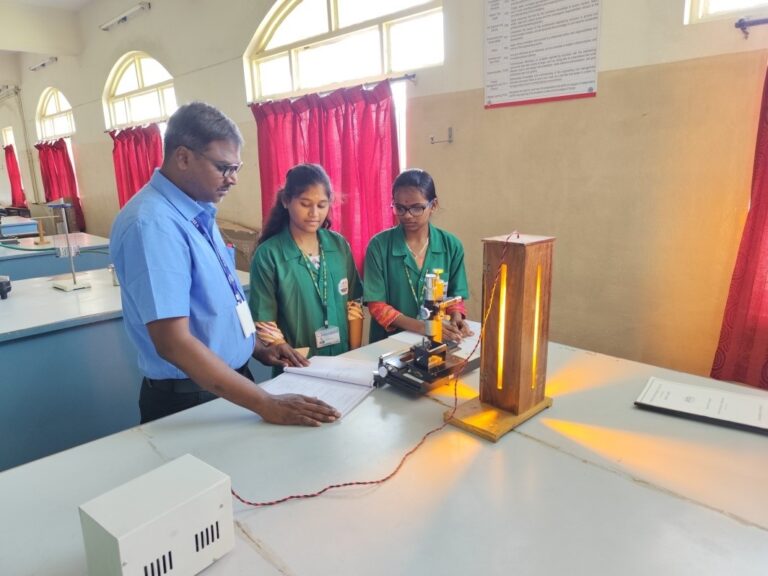
Physics Lab I
The Physics Laboratory is a dedicated space designed to facilitate hands-on learning and experimentation in the field of physics. Equipped with essential instruments and advanced apparatus, the lab supports a wide range of experiments in classical mechanics, optics, electricity and magnetism, thermodynamics, and modern physics.
Physics Lab II
Students are encouraged to explore and verify physical laws, develop practical skills, and cultivate scientific reasoning through structured experiments. The lab promotes collaborative learning, safety, and accurate data analysis using both manual and digital tools.
